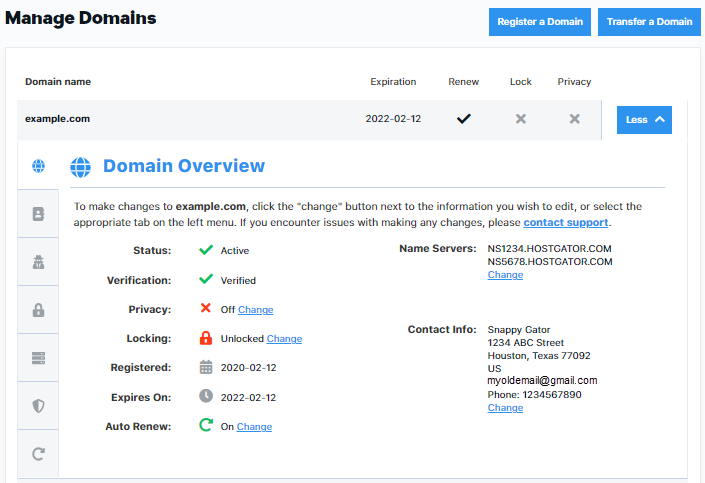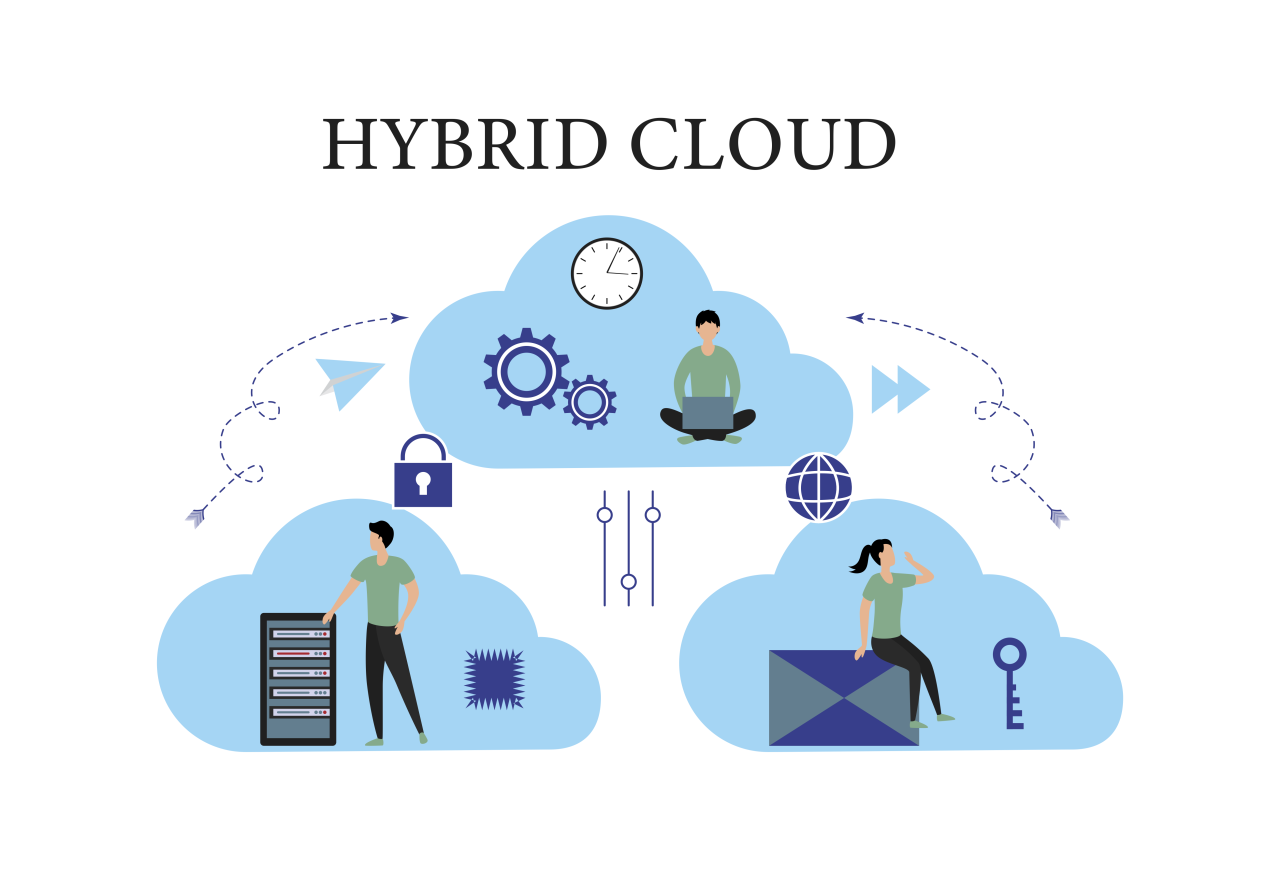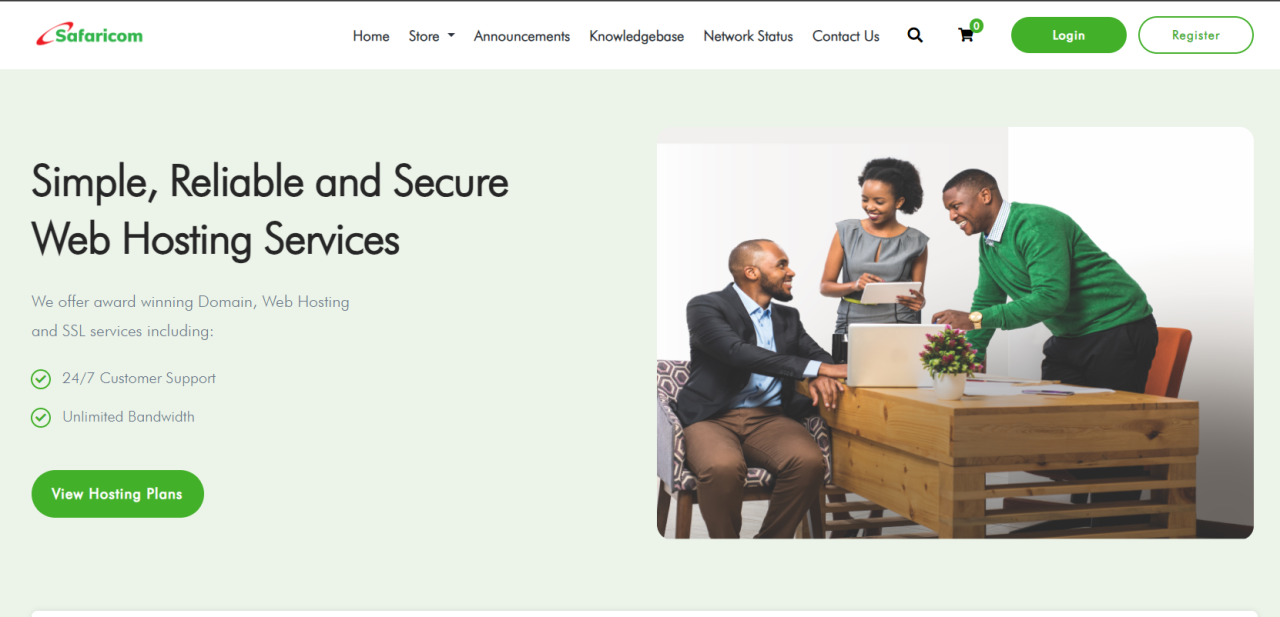Free web hosting offers a tempting proposition for website owners, especially those starting out. It provides a cost-effective way to establish an online presence without initial financial investment. However, understanding the limitations and navigating the complexities of free hosting is crucial for making informed decisions and achieving success.
This guide explores the world of free web hosting, delving into its benefits, drawbacks, and best practices. We’ll examine the features, security measures, and support options offered by free providers, as well as the considerations for choosing the right provider. We’ll also discuss how to optimize your website for performance and within the constraints of free hosting, and explore alternative options for those seeking more advanced features or increased scalability.
Understanding Free Web Hosting
Free web hosting refers to a service that allows individuals and businesses to host their websites without paying any monthly or annual fees. This type of hosting is typically offered by companies that generate revenue through advertising displayed on the hosted websites or through other means, such as selling premium services.
Free web hosting can be a valuable option for individuals and small businesses who are just starting out or have limited budgets. It offers a way to establish an online presence without significant financial investment.
Benefits of Free Web Hosting
Free web hosting offers several benefits, including:
- Low Cost: The most significant advantage of free web hosting is its affordability. It allows individuals and businesses to create a website without any upfront costs.
- Ease of Use: Many free web hosting providers offer user-friendly interfaces and tools that simplify the process of setting up and managing a website, even for beginners.
- Accessibility: Free web hosting makes website creation accessible to a wider audience, including individuals with limited financial resources.
Limitations and Drawbacks of Free Web Hosting
While free web hosting offers advantages, it also comes with certain limitations and drawbacks that users should consider:
- Limited Resources: Free web hosting plans often have restricted resources, such as storage space, bandwidth, and processing power. This can affect website performance, especially if the site receives high traffic.
- Advertisements: Most free web hosting providers display advertisements on hosted websites to generate revenue. These ads can be intrusive and detract from the user experience.
- Limited Features: Free plans often lack advanced features, such as email accounts, databases, and website security tools, which may be essential for some websites.
- Performance Issues: Free web hosting services often share resources with multiple users, which can lead to slower loading times and other performance issues.
- Lack of Support: Free web hosting providers typically offer limited customer support, which can be frustrating for users experiencing technical difficulties.
- Domain Restrictions: Free web hosting plans often require users to use a subdomain, such as “yoursite.freehost.com,” instead of a custom domain name. This can impact brand recognition and professionalism.
Reputable Free Web Hosting Providers
Despite the limitations, there are several reputable free web hosting providers that offer reliable services. Some popular examples include:
- 000Webhost: 000Webhost provides free web hosting with features like a website builder, FTP access, and email accounts.
- Freehostia: Freehostia offers a free web hosting plan with unlimited disk space, bandwidth, and email accounts.
- AwardSpace: AwardSpace provides a free web hosting plan with features like a website builder, FTP access, and a control panel.
- ByetHost: ByetHost offers a free web hosting plan with features like a website builder, FTP access, and a control panel.
- InfinityFree: InfinityFree provides a free web hosting plan with features like unlimited disk space, bandwidth, and email accounts.
Features of Free Web Hosting

Free web hosting services often provide a basic set of features to help you get your website online without any upfront cost. These features can vary depending on the provider, but common offerings include:
Storage Space
Free web hosting plans usually come with limited storage space. This space is where your website files, including HTML, CSS, images, and other content, are stored. The amount of storage space allocated can vary greatly between providers, with some offering as little as 50 MB and others offering up to several GB.
Bandwidth
Bandwidth refers to the amount of data that can be transferred between your website and visitors’ computers. Free web hosting plans typically have limited bandwidth, meaning there’s a restriction on how much data your website can transfer within a specific time period. This limitation might result in slower loading times for your website, especially if you experience a sudden surge in traffic.
Databases
Websites often rely on databases to store information such as user data, product details, and blog posts. Free web hosting services might provide access to a limited number of databases or restrict the size of these databases. This can impact the functionality and scalability of your website, especially if you plan to store large amounts of data.
Security Measures, Free web hosting
Security is crucial for any website, and free hosting providers typically offer basic security measures such as firewalls and malware scanning. However, these security features might be less robust compared to paid hosting plans, which often offer more advanced security features like SSL certificates and DDoS protection.
Technical Support
Free web hosting services generally offer limited technical support. You might have access to a knowledge base or community forums, but direct support from a technical team might be limited or unavailable. This can be a challenge if you encounter technical issues with your website and need assistance.
Choosing a Free Web Hosting Provider
Choosing the right free web hosting provider is crucial for your website’s success. It’s essential to carefully evaluate your needs and compare different options before making a decision.
Factors to Consider
When choosing a free web hosting provider, it’s crucial to consider various factors to ensure you get the best value for your needs. Here is a checklist of essential factors:
- Storage Space and Bandwidth: Free hosting providers often have limited storage space and bandwidth. Consider the size of your website and the amount of traffic you expect.
- Features: Look for essential features such as support for popular content management systems (CMS) like WordPress, email accounts, databases, and security features.
- Performance and Reliability: Free hosting providers may have slower speeds and lower uptime due to shared resources. Check reviews and consider providers with a good track record.
- Customer Support: Free hosting providers may offer limited or no customer support. Choose a provider that offers at least basic support options like email or a knowledge base.
- Terms of Service: Carefully read the provider’s terms of service to understand any restrictions or limitations, including advertising requirements, bandwidth usage, and data storage policies.
- Privacy Policy: Ensure the provider has a clear privacy policy that protects your data and complies with relevant regulations.
Comparing Popular Free Hosting Providers
A table comparing key features and limitations of popular free hosting providers can help you make an informed decision.
| Provider | Storage Space | Bandwidth | Features | Limitations |
|---|---|---|---|---|
| Freehostia | 250 MB | 5 GB | WordPress, MySQL, PHP | Limited customer support, advertising requirements |
| 000Webhost | 1 GB | 10 GB | WordPress, MySQL, PHP, FTP | Limited features, slower speeds, advertising requirements |
| ByetHost | 500 MB | 5 GB | WordPress, MySQL, PHP, FTP | Limited features, slower speeds, advertising requirements |
Evaluating Reliability and Uptime
It’s important to assess the reliability and uptime of free hosting providers to ensure your website is accessible to visitors. Here are some tips:
- Check Reviews: Look for reviews from other users on websites like Trustpilot or SiteJabber to get an idea of the provider’s performance and reliability.
- Monitor Uptime: Use uptime monitoring tools like UptimeRobot or Pingdom to track the provider’s uptime and identify any issues.
- Consider Shared Resources: Free hosting providers often share resources with other users, which can impact performance and uptime. Be prepared for potential slowdowns or outages.
Importance of Checking Terms of Service and Privacy Policy
Before choosing a free hosting provider, carefully review their terms of service and privacy policy to understand your rights and obligations.
- Advertising Requirements: Many free hosting providers require you to display ads on your website. Understand the placement, content, and frequency of these ads.
- Bandwidth Usage: Free hosting providers may have limits on bandwidth usage. Ensure the provider’s limits meet your website’s traffic needs.
- Data Storage Policies: Understand how the provider stores and protects your data, including backups and data retention policies.
- Privacy Policy: Ensure the provider has a clear privacy policy that protects your personal information and complies with relevant regulations.
Using Free Web Hosting Effectively
While free web hosting offers a cost-effective way to establish an online presence, it’s essential to understand that limitations come with the territory. To make the most of free hosting, you need to implement strategies that optimize performance, manage traffic, and ensure security.
Optimizing Website Performance
Optimizing your website’s performance is crucial, even more so when relying on free hosting. Limited resources often mean slower loading times, which can impact user experience and potentially lead to higher bounce rates.
- Choose a lightweight theme and plugins: Free hosting often has limited storage and processing power. Selecting a simple theme and only essential plugins minimizes resource consumption, leading to faster loading times.
- Optimize images: Compressing images reduces their file size, significantly impacting page load speed. Tools like TinyPNG or Kraken.io can help you achieve this without compromising image quality.
- Enable browser caching: Caching allows browsers to store website data locally, reducing the need to download everything again on subsequent visits. This improves performance and reduces server load.
- Minify HTML, CSS, and JavaScript: Minifying code removes unnecessary characters and spaces, resulting in smaller file sizes and faster loading times.
Managing Website Traffic
Free hosting often comes with bandwidth limitations, meaning there’s a limit on the amount of data your website can transfer. Managing traffic effectively is crucial to avoid exceeding these limits and experiencing downtime.
- Monitor your website’s traffic: Regularly monitor your website’s traffic using analytics tools like Google Analytics. This helps identify peak traffic hours and patterns, enabling you to anticipate and adjust your resource usage accordingly.
- Implement caching strategies: Caching reduces the server load by storing frequently accessed content in temporary storage, minimizing the need to process it every time a user requests it.
- Consider using a content delivery network (CDN): A CDN distributes your website’s content across multiple servers globally, bringing it closer to users and reducing loading times. While CDNs are usually paid services, some offer free plans with limited features.
- Limit the use of embedded videos and large files: Videos and large files consume significant bandwidth. Consider using smaller files or embedding them from external platforms like YouTube or Vimeo to reduce the strain on your free hosting.
Protecting Your Website from Security Threats
Free hosting often comes with less robust security measures compared to paid options. It’s essential to take proactive steps to protect your website from security threats.
- Use strong passwords and two-factor authentication: Protect your website’s administrative panel with strong passwords and enable two-factor authentication for an extra layer of security.
- Keep your software up to date: Regularly update your WordPress core files, plugins, and themes to patch security vulnerabilities and minimize the risk of attacks.
- Install a security plugin: Plugins like Wordfence or Sucuri can help detect and block malicious traffic, monitor for suspicious activity, and provide real-time protection.
- Back up your website regularly: Regularly back up your website’s data to ensure you can restore it in case of a security breach or accidental data loss.
Integrating Free Web Hosting with Other Online Tools and Services
Free web hosting platforms often offer integration options with other online tools and services, expanding your website’s capabilities and functionalities.
- Email marketing services: Integrate your website with email marketing platforms like Mailchimp or Constant Contact to build email lists, send newsletters, and promote your content.
- Social media platforms: Connect your website to social media platforms like Facebook, Twitter, and Instagram to enhance visibility, share updates, and engage with your audience.
- Analytics tools: Integrate your website with analytics tools like Google Analytics to track website traffic, user behavior, and performance metrics.
- Payment gateways: Some free hosting providers offer integration with payment gateways like PayPal or Stripe, allowing you to accept online payments for products or services.
Free Web Hosting for Specific Purposes

Free web hosting can be a valuable resource for various website types, but its suitability depends heavily on the project’s specific needs and goals. Understanding the limitations and advantages of free hosting is crucial for making informed decisions.
Free Web Hosting for Personal Websites and Blogs
Free web hosting is often an excellent starting point for personal websites and blogs. Its low cost allows individuals to experiment with website creation and online content publishing without significant financial investment. Free hosting platforms typically offer user-friendly website builders, making it easy to create basic websites with minimal technical knowledge.
Limitations of Free Hosting for E-commerce Websites and Online Businesses
Free web hosting is generally not recommended for e-commerce websites and online businesses due to several limitations. The most significant concern is the lack of security and reliability that free hosting providers typically offer.
- Limited storage and bandwidth: Free hosting plans often impose strict limits on storage space and bandwidth, which can quickly become a bottleneck for businesses with growing product catalogs or high traffic volumes.
- Restricted features: Free hosting plans usually lack essential features for e-commerce, such as secure payment gateways, shopping cart functionality, and inventory management tools.
- Limited customization: Free hosting plans may impose restrictions on website design and customization, hindering the ability to create a professional and branded online presence.
- Lack of support: Free hosting providers often offer limited customer support, making it challenging to resolve technical issues or get assistance with website maintenance.
- Potential for downtime: Free hosting services may experience frequent downtime due to shared server resources and limited infrastructure. This can negatively impact customer experience and sales.
Free Hosting for Educational or Non-Profit Projects
Free web hosting can be a valuable tool for educational and non-profit organizations with limited budgets. These platforms provide an accessible way to create websites to share information, promote events, and connect with audiences.
- Educational websites: Free hosting can be used to create educational websites that provide access to learning resources, online courses, and student projects.
- Non-profit websites: Free hosting can be utilized to build websites for non-profit organizations to share their mission, fundraising efforts, and volunteer opportunities.
Alternative Hosting Options for Websites with Higher Traffic or Specific Requirements
For websites with higher traffic volumes or specific requirements, paid hosting plans offer more robust features, security, and support.
- Shared hosting: Shared hosting is a cost-effective option for websites with moderate traffic. Multiple websites share the same server resources, making it a budget-friendly choice.
- VPS hosting: VPS hosting provides a dedicated portion of a server’s resources, offering more control and performance than shared hosting.
- Dedicated hosting: Dedicated hosting provides an entire server dedicated to a single website, offering the highest level of performance, security, and customization.
- Cloud hosting: Cloud hosting utilizes a network of servers to distribute website traffic and resources, offering scalability, reliability, and flexibility.
Alternatives to Free Web Hosting

While free web hosting can be a good starting point for a new website, it often comes with limitations that can hinder your website’s growth and performance. For those looking for more features, reliability, and control, paid web hosting offers a range of options.
Comparing Free and Paid Hosting
Free and paid web hosting services offer different features, resources, and levels of support. Understanding these differences is crucial for choosing the right option for your website’s needs.
- Storage and Bandwidth: Free hosting typically offers limited storage and bandwidth, which can restrict your website’s size and traffic handling capacity. Paid hosting plans provide significantly more storage and bandwidth, allowing you to host larger websites and accommodate increased traffic.
- Features and Control: Free hosting often lacks advanced features like email accounts, databases, and website management tools. Paid hosting offers a wider range of features, including website builders, security tools, and advanced analytics, giving you more control over your website’s functionality.
- Performance and Reliability: Free hosting services may experience slower speeds and frequent downtime due to shared resources and limited infrastructure. Paid hosting providers prioritize performance and reliability, ensuring your website remains accessible and fast for visitors.
- Support and Security: Free hosting services often provide limited support and security measures. Paid hosting plans offer dedicated support teams, proactive security measures, and regular backups to protect your website from threats and ensure its stability.
Advantages of Paid Hosting
Paid hosting services offer a range of advantages that can significantly benefit your website’s growth and performance.
- Enhanced Performance and Reliability: Paid hosting providers use dedicated servers and optimized infrastructure, resulting in faster loading times and reduced downtime. This ensures your website remains accessible and provides a positive user experience.
- Increased Storage and Bandwidth: Paid hosting plans offer significantly more storage and bandwidth, allowing you to host larger websites with more content and handle increased traffic without performance issues.
- Advanced Features and Control: Paid hosting services provide a wide range of features, including website builders, email accounts, databases, and security tools. This gives you more control over your website’s functionality and allows you to customize it to your specific needs.
- Dedicated Support and Security: Paid hosting providers offer dedicated support teams available 24/7 to assist with any technical issues or website-related concerns. They also implement proactive security measures and regular backups to protect your website from threats and ensure its stability.
Pricing Structures and Features
Paid hosting plans are available in various price ranges and feature sets, catering to different website needs and budgets.
- Shared Hosting: This is the most affordable option, where multiple websites share the same server resources. Shared hosting plans are suitable for small websites with low traffic and basic needs.
- VPS Hosting: Virtual Private Server (VPS) hosting provides dedicated resources and more control over the server environment. It’s a good option for websites with moderate traffic and resource requirements.
- Dedicated Hosting: This option provides an entire server dedicated solely to your website, offering the highest level of performance and control. Dedicated hosting is ideal for large websites with high traffic and complex applications.
- Cloud Hosting: Cloud hosting distributes your website across multiple servers, providing scalability, reliability, and cost-effectiveness. It’s a popular choice for websites with fluctuating traffic and resource demands.
Investing in Paid Hosting for Long-Term Growth
Investing in a paid hosting solution is a wise decision for long-term website growth. It provides the necessary resources, features, and support to ensure your website performs optimally and remains accessible to visitors.
- Improved Performance and User Experience: Paid hosting provides faster loading times, reduced downtime, and a more reliable website experience, leading to higher user engagement and satisfaction.
- Scalability and Growth Potential: Paid hosting plans offer the flexibility to scale your website’s resources as your traffic and needs grow, ensuring your website remains performant and reliable even with increased demand.
- Enhanced Security and Protection: Paid hosting providers offer advanced security measures and regular backups to protect your website from threats and ensure data integrity, giving you peace of mind about your website’s safety.
- Dedicated Support and Expertise: Paid hosting providers offer dedicated support teams available 24/7 to assist with any technical issues or website-related concerns, ensuring your website remains operational and your business continues to run smoothly.
Free Web Hosting and
Free web hosting can have both positive and negative impacts on your website’s search engine optimization (). While it provides a cost-effective way to get your website online, it often comes with limitations that can hinder your efforts.
Limitations of Free Hosting
Free hosting providers often have limited resources and infrastructure, which can affect your website’s performance and visibility in search results.
- Slow Loading Times: Free hosting providers often have shared servers with many other websites, leading to slower loading times. This can negatively impact your as search engines prioritize websites that load quickly.
- Limited Bandwidth and Storage: Free hosting plans usually have limited bandwidth and storage space. This can restrict your website’s growth and ability to host large files, such as images and videos, which are important for .
- Lack of Advanced Features: Free hosting plans typically lack advanced features like SSL certificates, website caching, and custom DNS settings, which are crucial for improving your website’s security and performance.
- Limited Control over Server Settings: Free hosting providers often restrict your access to server settings, limiting your ability to optimize your website for speed and performance.
- Potential for Downtime: Shared servers are more prone to downtime due to high traffic or technical issues. This can negatively impact your as search engines penalize websites with frequent downtime.
Optimizing Your Website for Search Engines
Even with the limitations of free hosting, you can still implement effective strategies to improve your website’s visibility.
- Focus on High-Quality Content: Create valuable and informative content that is relevant to your target audience. This is crucial for attracting visitors and improving your website’s ranking in search results.
- Optimize Your Website Structure: Ensure your website is well-structured with clear navigation, headings, and subheadings. This helps search engines understand your website’s content and index it effectively.
- Use Relevant s: Research and use relevant s in your website’s content, meta descriptions, and page titles. This helps search engines understand what your website is about and display it in relevant search results.
- Build High-Quality Backlinks: Backlinks are links from other websites to yours. They are a significant ranking factor in . Focus on building backlinks from reputable websites in your industry.
- Use Social Media: Promote your website on social media platforms to increase traffic and brand awareness. Social media signals can also positively impact your .
- Monitor Your Website’s Performance: Regularly monitor your website’s performance using analytics tools to identify areas for improvement.
Choosing a Reputable Free Hosting Provider
While free hosting providers often have limitations, some offer better features and performance than others. It is essential to choose a provider with a good reputation and strong capabilities.
- Read Reviews: Research and read reviews from other users to get an idea of a provider’s reliability and customer support.
- Check for SSL Certificates: Look for providers that offer free SSL certificates, which are essential for website security and .
- Consider Performance Metrics: Look for providers that offer features that can improve your website’s performance, such as caching and CDN (Content Delivery Network).
- Look for -Friendly Features: Some free hosting providers offer -friendly features, such as sitemaps and analytics tools.
Free Web Hosting for Beginners
Free web hosting is a great option for beginners who are just starting out with building their own websites. It provides a low-cost way to get your website online and learn the basics of web development without having to invest in expensive hosting plans. This section will guide you through the process of setting up your first website on free hosting, highlighting common challenges and providing tips for success.
Setting Up a Website on Free Hosting
Setting up a website on free hosting is a straightforward process that involves several steps. Here is a step-by-step guide:
- Choose a Free Hosting Provider: There are numerous free web hosting providers available. Research and select one that aligns with your requirements, such as ease of use, features, and reputation. Popular options include 000webhost, Freehostia, and AwardSpace.
- Sign Up for an Account: Create an account with your chosen provider. This usually involves providing basic information like your email address and choosing a username and password.
- Choose a Domain Name: A domain name is your website’s address on the internet. Many free hosting providers offer a free subdomain, such as “yourwebsite.freehost.com.” Alternatively, you can register a custom domain name through a domain registrar like GoDaddy or Namecheap.
- Create Your Website: You can create your website using various methods:
- Website Builder: Many free hosting providers offer built-in website builders that allow you to create a website with drag-and-drop functionality. This is a user-friendly option for beginners.
- Content Management System (CMS): Popular CMS platforms like WordPress, Joomla, and Drupal offer free software and provide extensive customization options. These platforms require a bit more technical knowledge but offer greater flexibility.
- Hand-Coding: If you are familiar with HTML, CSS, and JavaScript, you can create your website from scratch using a text editor. This approach gives you complete control over your website’s design and functionality.
- Upload Your Website Files: Once your website is created, you need to upload the files to your free hosting account. Most free hosting providers offer an FTP client or a file manager interface for this purpose.
- Configure Your Website: After uploading your website files, you may need to configure settings like database connections, email accounts, and other website-specific settings.
- Publish Your Website: Once everything is set up, your website is ready to go live! You can access your website using your domain name.
Resources and Tutorials for Beginners
The internet offers a wealth of resources and tutorials for beginners learning about website development. Here are some helpful resources:
- W3Schools: W3Schools is a comprehensive website offering tutorials and references for HTML, CSS, JavaScript, and other web technologies.
- Codecademy: Codecademy provides interactive courses and tutorials for learning web development, including HTML, CSS, and JavaScript.
- FreeCodeCamp: FreeCodeCamp offers a free, self-paced curriculum for learning web development and data science.
- YouTube: Search YouTube for tutorials on website development, web design, and specific CMS platforms like WordPress.
- Online Forums: Participate in online forums and communities dedicated to web development to ask questions, seek advice, and learn from experienced developers.
Challenges Faced by New Users of Free Web Hosting
Free web hosting often comes with limitations and challenges that beginners should be aware of:
- Limited Storage and Bandwidth: Free hosting plans typically offer limited storage space and bandwidth, which can affect your website’s performance and functionality if you have a lot of content or receive high traffic.
- Limited Features: Free hosting plans often have limited features, such as fewer email accounts, database limitations, and fewer website customization options.
- Advertisements: Many free hosting providers display advertisements on websites hosted on their platform. This can affect your website’s aesthetic appeal and user experience.
- Performance Issues: Free hosting plans often share resources with other users, which can lead to slower loading times and occasional downtime.
- Security Concerns: Free hosting providers may have less robust security measures, making your website more vulnerable to attacks.
Tips for Overcoming Challenges and Ensuring a Successful Website Launch
Here are some tips for overcoming the challenges of free web hosting and ensuring a successful website launch:
- Optimize Your Website: Optimize your website for speed and performance by using lightweight images, minifying code, and leveraging caching plugins. This will help improve user experience and reduce the impact of limited bandwidth.
- Choose a Suitable Domain Name: Select a domain name that is relevant to your website’s content and easy to remember. This will help attract visitors and establish your online presence.
- Focus on Quality Content: Create high-quality content that is relevant to your target audience. This will help engage visitors and build a loyal following.
- Promote Your Website: Use social media, search engine optimization (), and other marketing strategies to promote your website and attract visitors.
- Consider Upgrading to Paid Hosting: As your website grows, you may need to upgrade to a paid hosting plan to access more resources and features. Paid hosting offers greater control, security, and performance, allowing you to scale your website effectively.
The Future of Free Web Hosting
The world of free web hosting is in a constant state of flux, driven by technological advancements, evolving user expectations, and the competitive landscape. As the internet continues to grow and become more sophisticated, free hosting services are adapting to meet the changing needs of users.
Emerging Trends and Technologies
The future of free web hosting will be significantly influenced by emerging trends and technologies. These advancements will shape the way free hosting services are delivered and consumed.
- Cloud Computing: Cloud computing is revolutionizing the way web hosting is provided. Free hosting providers are increasingly leveraging cloud infrastructure to offer scalable, reliable, and cost-effective solutions. This allows them to provide more resources to users without incurring significant overhead costs. For instance, a free hosting provider might offer a limited amount of storage space, but by utilizing cloud infrastructure, they can easily scale up storage capacity as needed, without the need for expensive physical hardware upgrades.
- Artificial Intelligence (AI): AI is transforming various industries, and web hosting is no exception. AI-powered tools can be used to optimize server performance, automate tasks, and improve security. Free hosting providers can utilize AI to offer better user experiences and ensure the smooth operation of their services. For example, AI-powered chatbots can provide instant customer support, answering common questions and resolving basic issues, freeing up human support staff for more complex inquiries.
- Serverless Computing: Serverless computing allows developers to run code without managing servers. This eliminates the need for traditional infrastructure and simplifies development processes. Free hosting providers can adopt serverless computing to offer more flexible and cost-effective solutions to users. Imagine a scenario where a free hosting provider offers a platform for building simple websites or landing pages. By using serverless computing, they can provide users with the resources they need without having to manage the underlying infrastructure. Users can focus on building their content and functionality without worrying about server maintenance or scaling issues.
Free Web Hosting: A Case Study
This section delves into a case study of a popular free web hosting provider, analyzing its features, performance, and user experience. We’ll explore its strengths and weaknesses, determining its suitability for different website types and user needs.
Free Web Hosting Provider: 000Webhost
000Webhost is a widely recognized free web hosting provider, offering a basic platform for hosting simple websites. It boasts a user-friendly interface and straightforward setup, making it appealing to beginners.
Features
000Webhost offers a range of features designed to accommodate basic website requirements:
- Free Domain Name: 000Webhost provides a free subdomain with the “000webhostapp.com” suffix, allowing users to create websites without registering a custom domain.
- Website Builder: The platform offers a drag-and-drop website builder, simplifying the website creation process for users with limited technical expertise.
- Limited Storage and Bandwidth: Free accounts are limited in terms of storage and bandwidth, restricting the size and traffic of hosted websites. These limitations are typical for free web hosting services.
- Basic Security Features: 000Webhost provides essential security measures, including basic anti-malware protection and a firewall, but more robust security features are typically offered in paid plans.
- Limited Control Panel: The control panel offers basic functionalities, such as file management and database access, but lacks advanced features found in paid hosting solutions.
Performance
Performance is a crucial factor for website success. 000Webhost’s performance can vary depending on server load and website complexity.
- Loading Speed: Website loading speeds can be affected by server load, especially during peak hours. This can impact user experience and search engine rankings.
- Uptime: 000Webhost generally maintains a reasonable uptime, although occasional outages can occur due to server maintenance or unexpected issues.
- Resource Allocation: Free accounts receive limited resources, which can affect website performance, especially for websites with high traffic or resource-intensive functionalities.
User Experience
000Webhost prioritizes user-friendliness, making it an accessible option for beginners.
- Ease of Use: The platform’s intuitive interface and straightforward setup process make it easy for users to create and manage websites without extensive technical knowledge.
- Customer Support: 000Webhost offers basic customer support through a knowledge base and community forums, but live chat or phone support is not available in free plans.
- Limited Customization: Free accounts offer limited customization options, restricting the ability to personalize website design and functionality.
Strengths and Weaknesses
000Webhost presents both strengths and weaknesses, influencing its suitability for different website types and user needs.
- Strengths:
- Free and Easy to Use: 000Webhost’s free plan provides an accessible platform for beginners to create basic websites without upfront costs.
- User-Friendly Interface: The platform’s intuitive interface simplifies website creation and management, making it suitable for users with limited technical skills.
- Basic Features: 000Webhost offers essential features, including a website builder, free subdomain, and limited storage and bandwidth, sufficient for simple websites with low traffic.
- Weaknesses:
- Limited Resources: Free accounts are limited in terms of storage, bandwidth, and other resources, restricting the size and functionality of hosted websites.
- Performance Issues: Server load can affect website loading speed, especially during peak hours, impacting user experience and search engine rankings.
- Limited Customization: Free accounts offer limited customization options, restricting the ability to personalize website design and functionality.
- Basic Customer Support: 000Webhost’s customer support is limited to a knowledge base and community forums, lacking live chat or phone support.
Suitability for Different Website Types and User Needs
000Webhost is suitable for specific website types and user needs:
- Personal Websites: 000Webhost is an ideal choice for individuals seeking to create simple personal websites, portfolios, or blogs with limited traffic and content.
- Small Business Websites: For small businesses with minimal website requirements, 000Webhost can be a cost-effective option, but its limited resources may become a bottleneck as the business grows.
- Testing and Development: Developers and designers can use 000Webhost to test and develop websites before deploying them on a more robust hosting platform.
- Beginner Webmasters: 000Webhost’s user-friendly interface and straightforward setup process make it an excellent platform for beginners to learn about web hosting and website management.
Conclusion
000Webhost is a viable option for individuals and businesses with basic website requirements and limited budgets. However, its limitations in terms of resources, performance, and customization make it unsuitable for websites with high traffic, complex functionalities, or demanding performance needs. As a user’s needs evolve, transitioning to a paid hosting solution may be necessary to accommodate website growth and optimize performance.
Final Conclusion
While free web hosting can be a valuable starting point, it’s important to recognize its limitations and weigh them against your website’s needs. As your website grows and your requirements evolve, you may find that paid hosting options offer greater flexibility, performance, and security. Ultimately, the choice between free and paid hosting depends on your individual circumstances, budget, and long-term goals. By carefully considering the factors discussed in this guide, you can make an informed decision that aligns with your website’s success.
Free web hosting can be a great way to showcase your creative projects, like your unique Christmas decorations. If you’re looking for inspiration, check out this guide on making your own Christmas decorations , and then use free web hosting to share your creations with the world.
You can even create a website dedicated to your holiday crafts and attract a following of fellow DIY enthusiasts.




